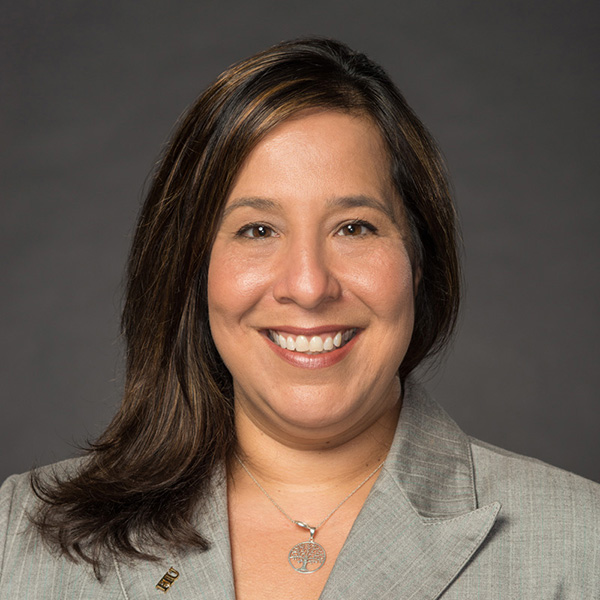
Dr. Mariana Sanchez
Dr. Mariana Sanchez has over 20 years of experience in conducting longitudinal and community-based health disparity research across the lifespan including youth, emerging adults, and adults. Her program of research seeks to gain a deeper understanding of the sociocultural risk and protective factors that influence health behaviors, with an emphasis on substance use and its related consequences among Latino/a populations.
The bulk of her research has focused on examining how sociocultural determinants influence substance use and mental health among vulnerable Latino/a subgroups including recent immigrants, unauthorized immigrants, and farm workers. Dr. Sanchez has been an investigator on five National Institutes of Health-funded studies. She is currently a co-principal investigator of a mixed-methods study funded by the National Institute for Alcohol Abuse and Alcoholism aimed at understanding the environmental, demographic, and sociocultural factors influencing drinking and driving trajectories among recent Latino/a immigrants.
She also serves as a co-investigator on the Adolescent Brain and Cognitive Development (ABCD Study®). The ABCD study is a groundbreaking investigation funded by multiple Institutes of the National Institutes of Health that examines the biological and behavioral trajectories of more than 11,000 children across 21 sites, beginning at ages 9-10 through adolescence into early adulthood. In this capacity, she provides guidance on cultural determinants of health among youth.
Dr. Sanchez is also the Program Director for FIU’s Doctoral Program in Public Health with a Concentration in Health Disparities. The goal of this concentration is to train doctoral students in conducting health disparities research with a focus on the U.S., Latin America, and the Caribbean region. Ultimately, she aspires that knowledge gained from her research informs the development of culturally relevant evidence-based interventions that target identified vulnerability factors and leverage key protective factors in preventing substance misuse and its related consequences among Latino/a immigrants and other underrepresented populations.